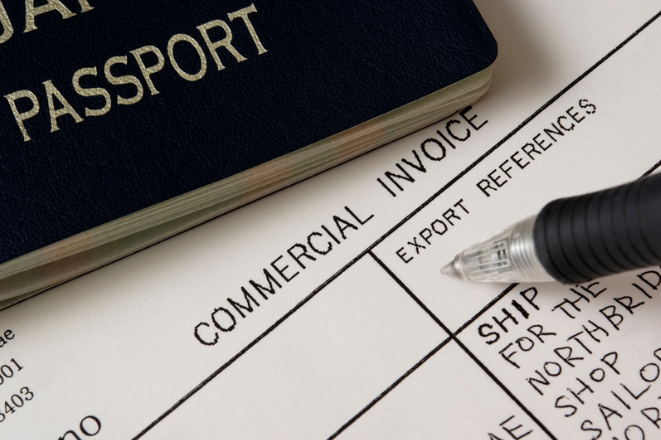Exporting from South Africa – The required documentation
Unsure which documents you need when exporting from South Africa?
There are 4 primary documents required by South African Customs officials when you export products from South Africa. We explain them to you below:
-
Exporters registration/ CODE/ license
Every commercial entity exporting from South Africa must be registered with SARS (South African Revenue Services) customs as an exporter. On registration, you will receive an 8-digit code commonly known as your export license but also referred to as a CCN number (customs client number) or export customs code. With this number, all your exports are tracked by South African customs. Without it, customs clearance cannot occur (the exception being a once-off export of minimal value). The number also indicates to South African Customs whether your exported products will obtain incoming foreign exchange, information required by the exchange control department of SARB (the South African Reserve Bank).
Due to the unfortunate reality that products may be sent back to you or your buyer may want a refund, it would be wise to register simultaneously for an import code. During this process, ensure you state the countries you will be exporting to as some countries have trade agreements with South Africa.
-
Regulatory documents and export permits
South African customs monitor specified regulated products for export. In order to be cleared, these products need permits, certificates or other specified documentation. The list of items that require regulatory documentation for export is, however, far shorter than the list of regulatory documents that a country may require for import. Documents required for import differ depending on the final destination country. These documents typically need to be acquired before export so that they can accompany the export. An example is that of animal products which could require a veterinary health certificate. Similar regulatory documentation may apply for products such as second-hand or electronic items, high-value products, products made from wood or products intended for human or animal consumption, fertilizers etc. Contact our offices if you are unclear about the special requirements for your export products.
-
Certificate of origin
There are a wide number of countries that have trade agreements with South Africa. These agreements benefit your buyer (and therefore, you) in that nil or reduced import duties can be charged on products made, or partially made, in South Africa. The aim is to make South African products more attractive to foreign buyers. The certificate of origin is the proof required by customs in the destination country that the products in question originate in South Africa. While this is not required by South African customs for export, if you want to obtain the benefit one certificate of origin needs to accompany each export. Check your destination countries here to see whether they fall into this category.
-
Commercial Invoice
A commercial invoice is a document from you, the exporter, to your buyer, the importer, which describes the terms of your interaction as well as the product/s being sold. This invoice will need to have the seller and buyer’s details. For each item sold include: For each individual item, make sure to include the: weight of an individual item, value, HS code, country of origin and quantity. Also, include how they are packed and the total weight once packed. You will need the full details of the of the shipment, including the incoterm. It should be signed and dated. When included in the total selling price, charges for freight and insurance are to be listed separately, as some countries do not charge duty on these costs.
Look here for a guide to international commercial invoice requirements.
Also, see the “export readiness” checklist we’ve created to help you navigate the process more smoothly.






